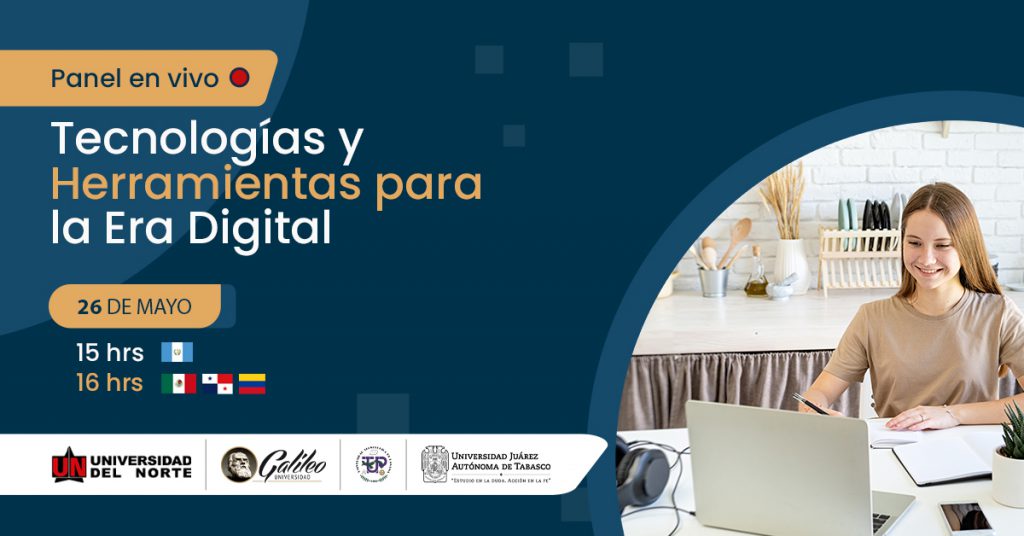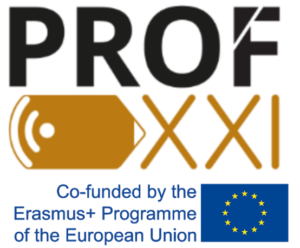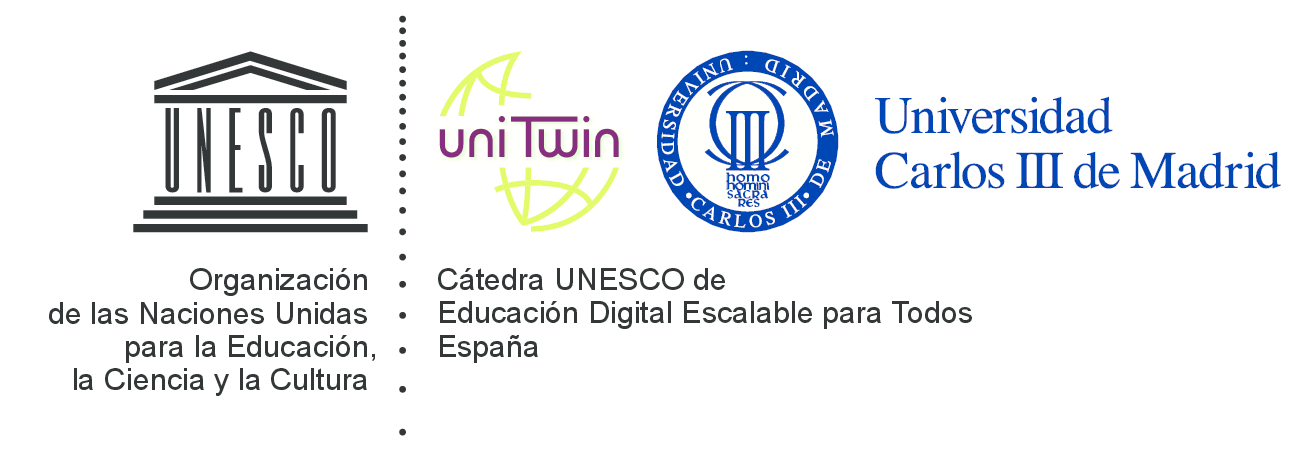
In today’s world, there is a wide range of technologies, tools, and online resources available that can help enhance students’ learning in digital environments. However, it is important to carefully select those that are most appropriate to achieve the desired learning outcomes. For online teaching and learning to be effective, there must be a strong alignment between the intended learning outcomes and the tools that will help students achieve these outcomes.
On May 26 at 15:00 hrs (UTC), the University of Galileo (Guatemala), a partner in the PROF-XXI project, will host a panel discussion titled ‘Technologies and Tools for the Digital Era.’
This panel will feature the participation of renowned experts from higher education institutions who will focus on the available tools for the learning process in the digital era.
Conoce a los expertos

Dr. Edna Manotas is the Coordinator of Digital Educational Material Design at the University of the North, Colombia.
She holds a Ph.D. in Communication with an emphasis on education and media literacy from the University of Huelva. She is a Social Communicator with Master’s degrees in Cultural Studies and Media Engineering for Education. Her expertise spans across projects involving the use of media in education, instructional design for virtual environments, pedagogical innovation, digital network coordination, virtual communities, and digital educational material design. She also serves as a university lecturer, teaching courses related to educational video production, educational mediations, and critical media literacy. Dr. Manotas is known for her creativity, strong teamwork capabilities, and leadership skills.

Dr. Guisela Clunie is the General Director of Educational Innovation and Technology (DiGITED) at the Technological University of Panama.
Ph.D. in Systems Engineering and Computer Science with a Specialization in Informatics and Education from the Federal University of Rio de Janeiro, Brazil. She also holds a Master’s degree in Systems Engineering and Computer Science with a Specialization in Informatics and Society from the Federal University of Rio de Janeiro, Brazil. Additionally, she is a Specialist in Higher Education from the University of Panama.

Prof. Oscar González is associated with the Academic Division of Computer Science and Systems (DAIS) at the Juarez Autonomous University of Tabasco, Mexico.
He holds a Bachelor’s degree in Education from the Normal Superior School of Yucatan and a Master’s degree in Educational Technology from the Center of Excellence at the Autonomous University of Tamaulipas (UAT). He has obtained various international certifications in multimedia development and has authored over 40 publications in the field. Currently, he serves as the Director of the Academic Division of Computer Science and Systems (DAIS) at the Juarez Autonomous University of Tabasco (UJAT). In addition to his teaching responsibilities, he has conducted research in areas such as Education, Instructional Technology, Instructional Design, e-learning, and m-learning.

Dr. Miguel Morales is the Director of the Digital Education Area at the University of Galileo.
He holds a Ph.D. in Information and Knowledge Engineering from the University of Alcalá de Henares, Spain. He also has a Master’s degree in e-Learning Management and Production from the Carlos III University of Madrid. Currently, he coordinates the production of Massive Open Online Courses (MOOCs) and MicroMasters for Galileo on edX and directs educational innovation projects.
Moderator

Dr. Rocael Hernández is the Director of GES at the University of Galileo.
He holds a Ph.D. in Computer Science from the University of Graz, Austria. He serves as the Director of the Von Neumann Institute and the GES Department at the University of Galileo. Dr. Rocael Hernández is an academic researcher with a strong background in computer science, systems interoperability, web technologies, and virtual education. He has also worked as a consultant and director of international e-Learning and Web Technologies projects, gaining extensive experience in projects across various countries in Latin America, the United States, and Europe.
Based on the diverse experiences of the University of the North, Autonomous University of Juarez in Mexico, Technological University of Panama, and the University of Galileo, our panel of experts will seek to answer the following questions:
- What types of tools are currently being used by institutions to develop quality remote education?
- What have been the main challenges when integrating new technologies into the teaching and learning process?
- Which technologies and tools will become part of the available resources in institutions as a result of what has been learned during the pandemic?
Don’t miss this free online event, and get the opportunity to learn from experts about the available tools for the educational process in the digital era. Register by following this link: http://bit.ly/Tec-eradigital




